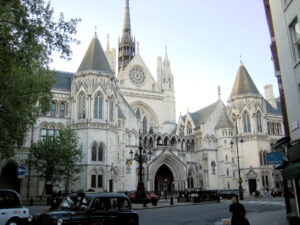2 in 3 glaciers predicted to be lost by 2100
The world could lose a vast number of glaciers and much of its water supply by 2100, as scientists predict nearly half could disappear due to the climate crisis.
There are over 200,000 glaciers across the world which act as a key water in mountainous areas, as citizens primarily rely on rivers and melt water for domestic water supply.
Now scientists across the world, led by Assistant Professor David Rounce of Civil and Environmental Engineering at Carnegie Mellon University, have predicted how different emissions scenarios could affect global glacier mass.
They found that as much as 41% of glacier mass could be lost this century and over 80% of the number of glaciers could disappear if investment in fossil fuels continues.
Even in a low-emissions scenario, where temperature rises are kept to the 1.5°C target, over 25% of glacial mass and nearly half of all glaciers are expected to be lost.

The authors of the study wrote: ‘Every increase in temperature has significant consequences with respect to glacier contribution to sea level rise, the loss of glaciers around the world, and changes to hydrology, ecology, and natural hazards.
‘Regardless of the temperature change scenario, all regions will experience considerable deglaciation at local scales, with roughly half of the world’s glaciers by number projected to be lost by 2100, even if temperature increase is limited to 1.5C.’
The loss of glaciers will also have a huge impact on sea levels, with researchers predicting an increase of 90 millimetres, or 3.5 inches, in a 1.5-degree rise scenario.
Current climate pledges from COP-26 set the world up for a 2.7°C temperature rise, but Rounce hopes his research will spur on policymakers to take urgent action to lower temperatures.
A rise of more than 2°C will disproportionately affect smaller glacial regions like Central Europe, Western Canada and the United States, while a rise of 3°C will see glaciers in these regions disappear almost completely.
According to Rounce, glaciers take a long time to respond to climate changes, so the effect of cutting emissions out today would take between 30 and 100 years to be reflected in glacier mass loss.
However, every effort to tackle the climate crisis makes a difference. ‘Although it is too late to avoid losing many glaciers, any effort to limit global mean temperature rise will have a direct effect on reducing how many glaciers will be lost,’ the authors wrote.
Photo by the Carnegie Mellon College of Engineering












